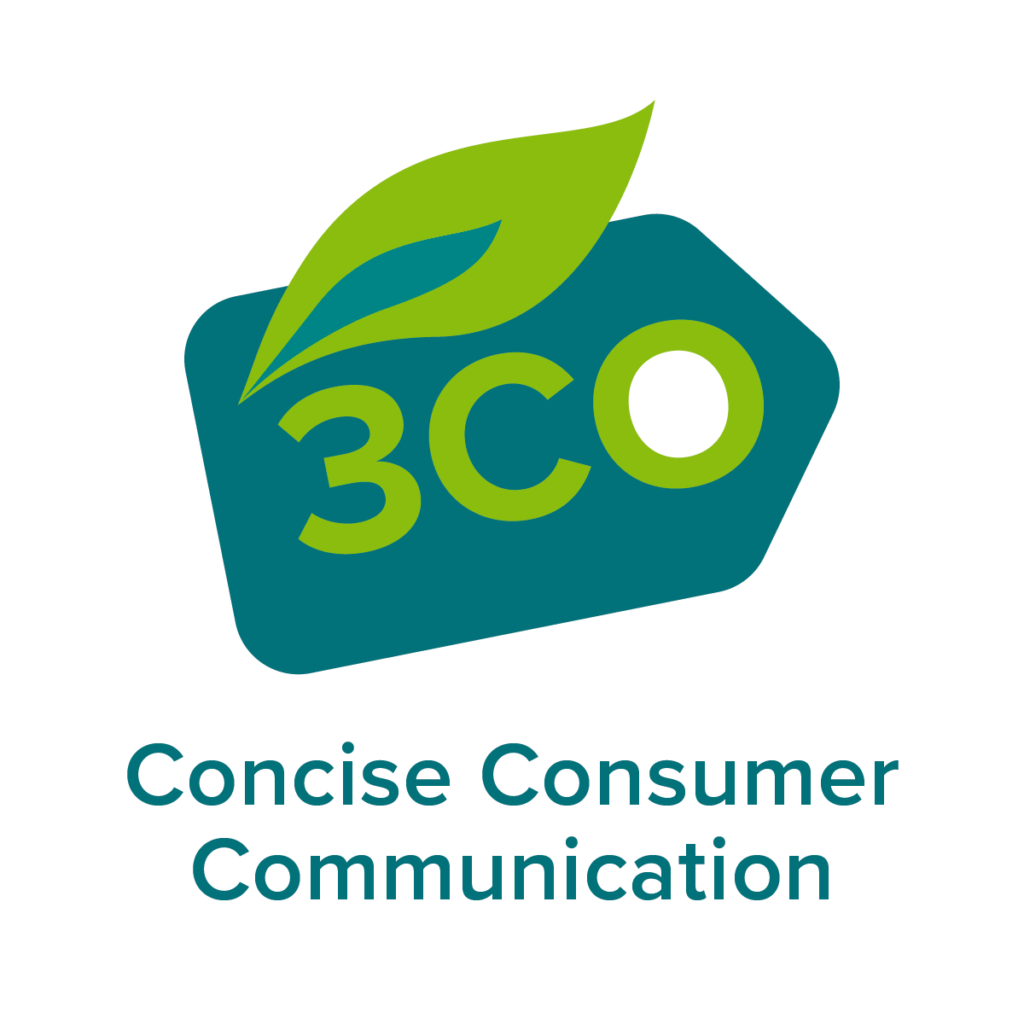
The project 3-CO (Concise Consumer Communication through Robust Labels for Biobased Systems) aims to support sustainable consumption and improve consumer behaviour through smart digital solutions and guidelines for Labelling and Certification Scheme holders. 3-CO will therefore develop and demonstrate the viability of a supportive framework for LCS on Business-to-Consumers (B2C) communication for industrial bio-based products, and will publish guidelines for label development. Holger Gerdes and Zoritza Kiresiewa 3-CO-partner Ecologic Institute elaborate on the potential of labelling and certification schemes in shaping consumer behaviour towards biobased products.
How can certification and labelling support green purchasing decisions?
Certifications and labels are key to informing green purchasing decisions. They can offer information about product’s lifecycle, including how raw materials are sourced, the manufacturing process, distribution, and even disposal. This level of detail could help consumers understand the environmental impact of their purchases, enabling them to choose products that reflect their sustainability values. However, the challenge lies in the label overload we are seeing out there, which can be overwhelming and confusing for consumers. It is important to recognise that not all labels are equal. Some undergo rigorous, third-party verification, ensuring they meet high standards, while others might be self-awarded or adhere to less strict criteria. 3-CO is committed to ensuring that the sustainability information provided to consumers is not only accurate and substantiated but also relevant, trustworthy, transparent, and clear, helping consumers to make informed choices in a landscape that can often be complex

How does social innovation play a role in shifting towards socially and environmentally responsible behaviours?
Over the past couple of years, social innovation has become widely integrated into various policies (e.g. EU Bioeconomy Strategy), programs (European Social Innovation Programme, Horizon 2020, Horizon Europe), and initiatives (Social Business Initiative, European Social Innovation Competition). The diversity in definitions and the ongoing debate over what precisely social innovation entails led us to adopt a definition that aligns with our project goals. Building on the definition provided by the European Commission, we define social innovation as new ideas – be they products, services, or models – that not only address social needs more effectively than existing solutions but, more importantly, foster new forms of social relationships or collaborations and encourage sustainable consumption and production patterns. In 3-CO, we are focused on collecting inspiring examples of social innovation from Europe and beyond. Our goal is to showcase initiatives that move beyond mere labels and certifications to truly empower consumers, industries, and public entities to embrace behaviours that benefit both society and the environment. Examples of such social innovations include bottom-up clothes swap initiatives, initiatives for the collection, cleaning, reassembly, and sale of used toys, repair cafes, urban gardening projects, and more. These examples illustrate the practical application of social innovation in fostering a shift towards more responsible and sustainable living.
How will the 3-CO project involve stakeholders to assess social engagement and transition towards responsible behaviour?
As a first step, we are inviting stakeholders from various domains to share examples of Social Innovation relevant to their fields in a survey. Their contributions, along with feedback on the examples our project team has gathered, are invaluable. To deepen this engagement, we are planning to organise a workshop where we will showcase the best examples we have identified. This event will serve as a platform for stakeholders to review and validate the examples, ensuring they truly represent impactful social innovations. We will further develop three tailored factsheets. These factsheets will be specifically designed for public authorities, industry representatives, and civil society organisations and non-governmental organisations. Through these factsheets, we aim to disseminate social innovation examples that inspire and inform each group, fostering a broader adoption of sustainable and responsible practices across sectors.
More information on the 3-CO project is available at https://3co-project.eu.
The 3-CO project is funded by the European Union. Views and opinions expressed are however those of the author(s) only and do not necessarily reflect those of the European Union or European Research Executive Agency. Neither the European Union nor the granting authority can be held responsible for them.

Source
nova-Institute, original text, 2024-07-25.
Supplier
Ecologic Institute
European Commission
European Union
Horizon 2020
Share
Renewable Carbon News – Daily Newsletter
Subscribe to our daily email newsletter – the world's leading newsletter on renewable materials and chemicals









